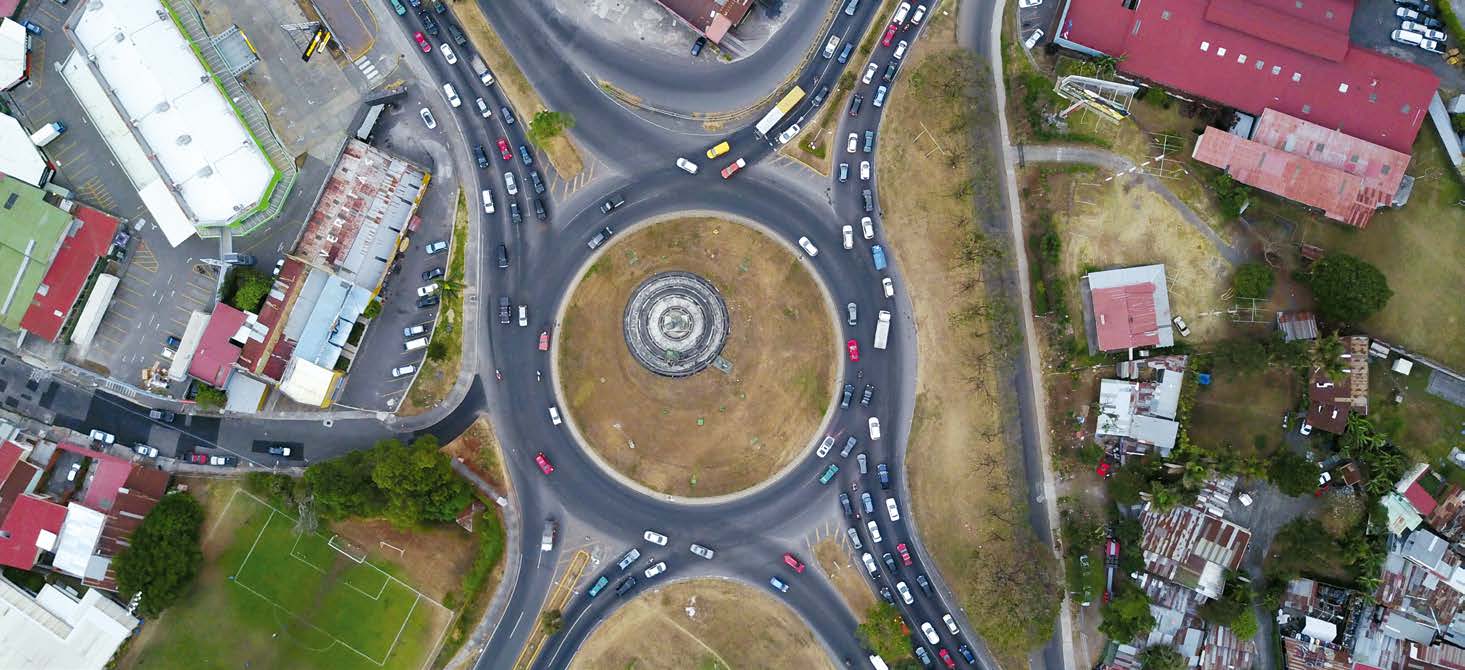
What To Expect – How to Drive a Rotonda
The rotonda, or roundabout, is a traffic control device invented by Satan to terrify foreigners.
Many extranjeros may have never experienced the heart-pounding confusion associated with being forced to negotiate a major intersection in the form of a circle, especially one that has two or three circular lanes and hundreds of cars driving all over the place with no apparent rhyme or reason. We’re here to help, so here are our five rules for negotiating a rotonda.
The cars that are already in the rotonda have the right of way.
When you approach a busy rotonda, you have to stop, look to your left, and wait until there’s an opening in traffic. You may have to wait a long time, depending on which lane you need (see below). Try not to worry about drivers waiting impatiently behind you — though if you miss an easy opening, whoever is behind you may honk at you.
Eventually you will see an opening when the nearest oncoming car veers right to exit. When this happens, step on the gas, turn the wheel to the right and join the rotonda traffic. The good news is, now you have the right of way because you’re in the rotonda, and all those sorry suckers at the next entrances will have to wait until you whiz past.
Choose your lane wisely.
As you approach the rotonda, know where you need to exit, and choose the correct lane to enter. Let’s say you’re approaching a rotonda with four exits and there appear to be three circular lanes surrounding it (though unmarked).
The easiest option is if you need to take the first exit, at 3 o’clock — in other words, you need to turn right. You simply approach the intersection in the right lane and make your move when it’s clear.
Second in degree of difficulty is if you need to take the second exit, at 12 o’clock — in other words, you need to go straight. If there are three lanes of straight traffic approaching three lanes of circular traffic, you need to approach from the middle lane and stay in the middle lane as you round the circle, then merge into the right lane to exit.
The toughest maneuvers are if you need to take the third or fourth exits, at 9 o’clock or 6 o’clock — i.e., turn left or do a U-turn. In this case, you need to approach from the left lane and dive straight to the innermost rotonda lane. Then you drive around the circle and merge your way outward when you need to make your exit.
Do not even think of timidly driving around the outside lane, farthest from the circle, if you need to do a 270- or 360-degree circuit. This causes accidents, because the outside lanes are for people who are about to exit, and you cannot be puttering around in their path when they’re gunning to leave the circle.
Speed is your friend.
With apologies to little old ladies, do not drive like a little old lady. Monitor the speed of traffic and match it — not too fast, but not too slow either. You need to drive at about the same speed as everyone else — though occasionally a bit slower or faster to jockey for position. Higher speeds allow less room for error and require faster timing, but higher speeds can also save you a lot of honking horns.
Cars on the inside must be allowed to exit right.
Among the cars that are already in the rotonda, the ones closest to the middle have the right of way over those in the outer lanes. Another way of saying this is that cars on the inside must be allowed to exit right when they’re good and ready. This means that if you’re in the middle of three circular lanes, and a car to your left is gunning to get out, you need to get out of its way. The upside of this equation is that if you are in the innermost lane, then cars to your right have to get out of your way. Use your turn signal, as other drivers cannot read your mind, and merge right when it’s safe.
Obviously, the direction of all roundabouts in Costa Rica is counterclockwise.
If you haven’t figured this out yet, you should probably incinerate your driver’s license and just take the bus.
You’re welcome. Happy driving!
